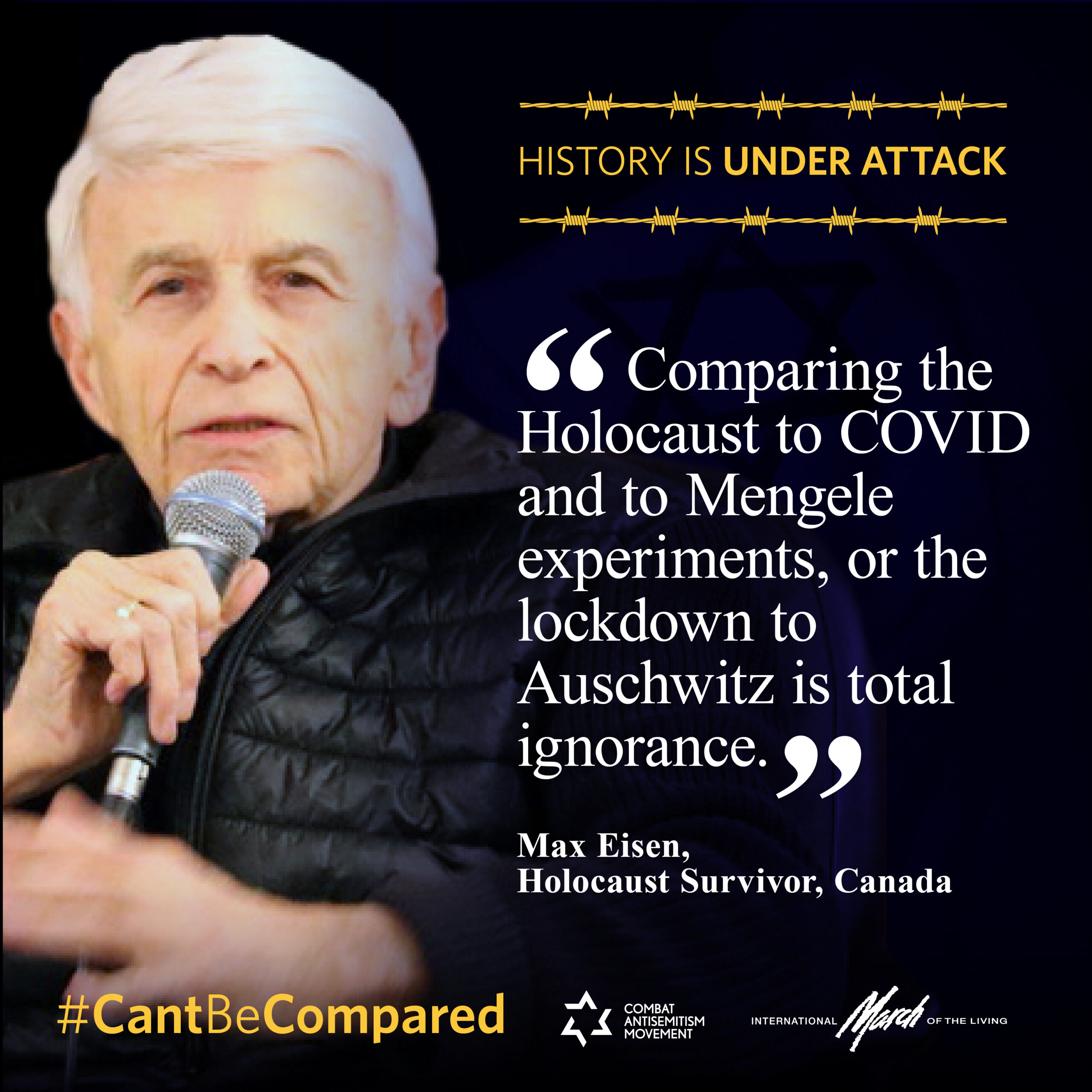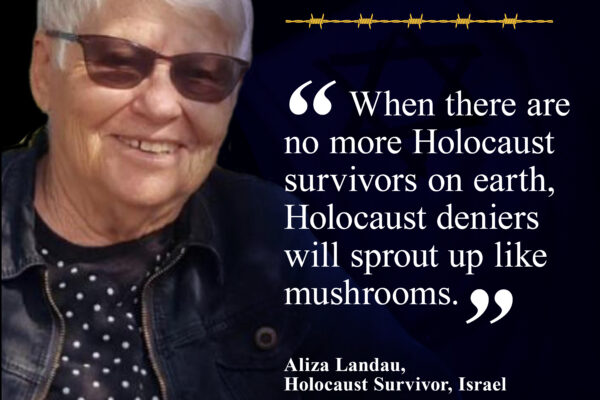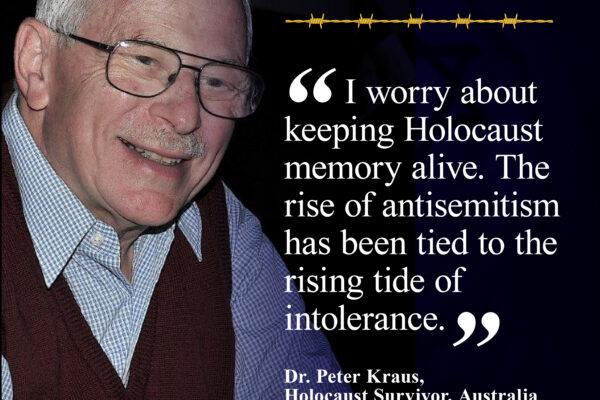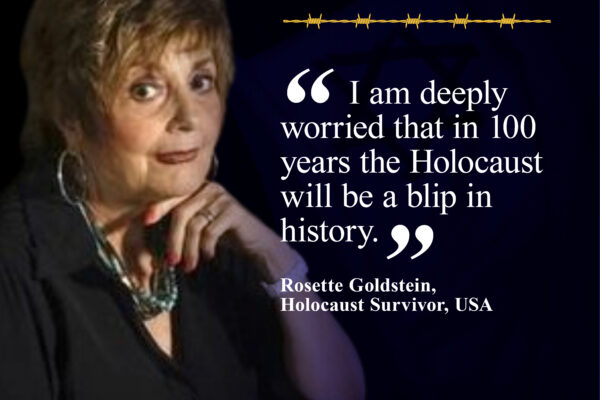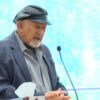Holocaust survivor Max Eisen discusses the future of Holocaust Memory
By Eli Rubinstein, Educational Director, International March of the Living
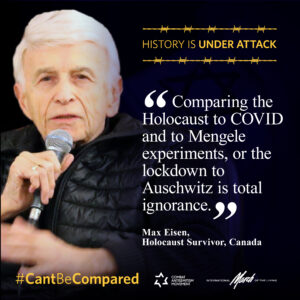 Max Eisen was born in March 1929 into a large Orthodox Jewish family in Slovakia. Eisen lived through two death marches before being liberated on May 6, 1945. Eisen attributes his survival, in part, to the heroism of a member of the Polish resistance, and a US Army liberator. Dr. Tadeusz Orzeszko, the chief surgeon in the surgery department in Auschwitz, took pity on the 15-year-old Eisen. He operated on him after a brutal beating by a Nazi guard and engaged him to be his assistant. Many years later, Eisen learned that Orzeszko was a member of the Polish resistance in Auschwitz. From Max’s large extended family, only two cousins returned.
Max Eisen was born in March 1929 into a large Orthodox Jewish family in Slovakia. Eisen lived through two death marches before being liberated on May 6, 1945. Eisen attributes his survival, in part, to the heroism of a member of the Polish resistance, and a US Army liberator. Dr. Tadeusz Orzeszko, the chief surgeon in the surgery department in Auschwitz, took pity on the 15-year-old Eisen. He operated on him after a brutal beating by a Nazi guard and engaged him to be his assistant. Many years later, Eisen learned that Orzeszko was a member of the Polish resistance in Auschwitz. From Max’s large extended family, only two cousins returned.
After the war, Max arrived in Quebec City in 1949 and was sent to Toronto by the Canadian Jewish community. He married Ivy Cosman, with whom he has two children, two grandchildren, and three great-grandchildren. With the encouragement of German lawyer Thomas Walther, Eisen testified in Germany at the trial of two former SS guards at Auschwitz: Reinhold Hanning and Oskar Gröning. Both were convicted.
Max is an author, public speaker, and Holocaust educator. He has been an active participant in March of the Living, having made the journey back to Auschwitz-Birkenau, with thousands of students, 18 times.
Ahead of International Holocaust Remembrance Day, Max spoke with March of the Living educational director Eli Rubinstein on the growing trend of Holocaust trivialization.
Q: The pandemic accelerated antisemitism: Isolation and quarantines have been compared to concentration camps, the US President’s medical advisor, Dr. Anthony Fauci, and Pfizer CEO Albert Bourla are being compared to Mengele, and concepts like the green pass are being compared to the yellow star. What does it feel like to see people inappropriately wearing the infamous striped uniforms or wearing the yellow star online and in the streets?
Max: To compare any of these things, in a very literal way that being locked down is somehow, you’ve lost your freedom, but this is by far, by millions of miles, of what it meant to be locked up in Auschwitz, there’s no comparison. And people are coming up with all kinds of crazy things, bringing up the Holocaust, and Covid and Mengele’s experiments, and so on, this is total ignorance. People have not learned from the past at all, so this is a big thing.
Q: What would you say to someone who would say this to you, someone who would compare Fauci to Mengele, and someone who would compare the Covid lockdowns to the Holocaust?
Max: I would say that this is absolutely not factual because there really is no comparison. Do you know what Mengele was doing? I would ask them. How can you bring this up?
Q: Holocaust denial is growing rapidly. How concerned are you for Holocaust memory in the future?
Max: I am very concerned. For many reasons. You can see that this is growing from 77 years ago
They’re coming up with all these things, making analogies to the gas chambers. This is only 77 years later, and a lot of people aren’t on board. I think of Rabbi Sacks who said that antisemitism is like a virus. Living in the Dark Ages, they hated us because of our religion, in the 19th and 20th centuries they hated us because of our race, and today they hate us because of the State of Israel. Anti-Zionism is the new antisemitism.
Q: Do you think that in fifty or a hundred years from now, the Holocaust will be forgotten?
Max: You know, I’m just amazed, with all these things going on, swastikas are what bothers me a lot, and I talk to the students about what the swastika means. Fifty thousand Canadians died to fight this evil symbol of the Nazis that is dripping in poison and blood. And they’re spraying the swastikas on synagogues and homes, who knows what they’re going to come up with next?
Amidst all these terrible things, more and more people are asking me to speak about the Holocaust. People want to hear about it. And yet, all these things are going on around us. I don’t think (the Holocaust) will disappear. We have a mighty job. We Jews, survivors and leaders, we are doing all kinds of things to try and educate and we Jews have been doing this for many, many years.
We are the survivors; we have a very difficult job you know. We’re up against a huge steamroller. We’re outnumbered, I’m really hoping that people will never forget it. I always say that without history there will be no memory, and without memory there will be no future.
Who knows, if I was a prophet maybe I’d be able to tell you the definitive answer, but I’m not a prophet.
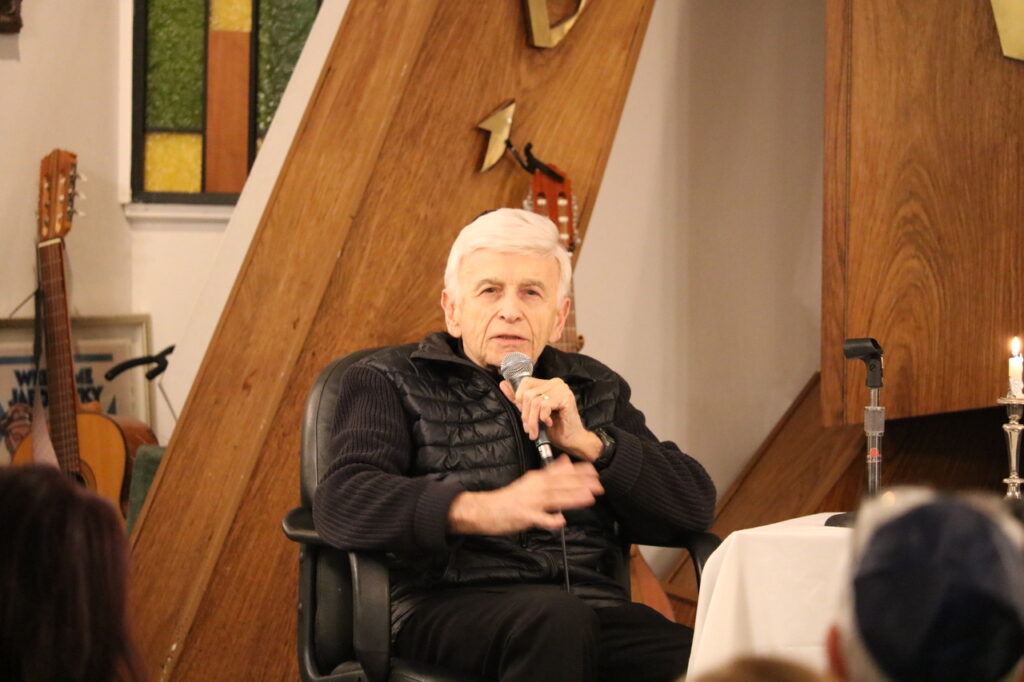
Q: What is the single most important message you’d like to get to people?
Max: You know what I tell them today? I was in a camp and Churchill was fighting against the Nazis in the Battle of Britain, and they’re being blown to smithereens by the Luftwaffe, they were short on pilots, he went on the radio and spoke, he was an amazing man, he spoke to the people of Britain. He said, “no matter what you have to do, we must win this battle, and if we don’t, our freedom and our way of life vanish into oblivion. We must not be a bystander, and we must stand up and say to these people, in our schools and our cities and towns in our country, we will not allow you to do these things here, not in any of these organizations, and everybody has to speak up.
This is the way I look at things, and this is what I’ve learned from the past.
Max and other Holocaust survivors from around the world are participating in the global #CantBeCompared campaign, speaking ahead of International Holocaust Remembrance Day, January 27, against a backdrop of growing trivialization of the Holocaust, especially in the context of the Covid-19 pandemic, which has seen comparisons made between pandemic restrictions and Nazi measures against Jews during the Holocaust.
